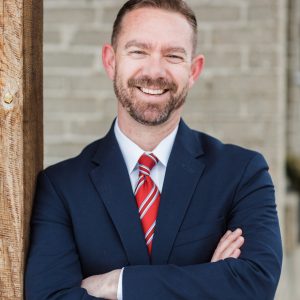Are Career Prosecutors Going the Way of the Dinosaur? Challenging Days for Ministers of Justice in the 21st Century by Brian D. Naugle

by Brian D. Naugle
Forty years ago, if you had asked a cross section of the American citizenry how a prosecutor spent his or her days, you’d have been more likely to get answers that spoke of professionalism, integrity, justice, and the like. You’d get different answers today. Today, police officers and prosecutors that do bad things get loads of attention because they are supposed to be good people doing difficult work for the right reasons. And maybe that’s the way it should be.
The very nature of law enforcement demands a level of honesty and integrity for which there is no comparison. The power to take away the freedom of any American ought to be handled with the greatest of care and those that fall short of the calling, lofty as it is, should expect to have farther to fall. On the other hand, it is worth recognizing that when the folks working in law enforcement do live up to the lofty expectations, little attention is paid because the result is that which we (Idahoans at least) have come to expect – safe communities where crime is both punished and deterred, and law-abiding people are allowed to live their lives in peace.
Sure, you occasionally hear about the lifesaving heroics of police officers, but few of those stories ever see the light of day. Your average police officer who keeps the peace, treats people with respect, and responds to your emergencies at a moment’s notice may never be hailed a hero. The prosecutor who charges the criminal with the crime he committed, brings him into court, and holds him to account in a court of law just the way the justice system intended, can expect the whole thing to go unnoticed in all but the rarest of cases. And most of us are just fine with that – prefer it, in fact. But the fact remains that from Atticus Finch to Saul Goodman, we Americans have always been more interested in the story of the clever, underpaid defense attorney single-handedly outsmarting – once again! – the powerful, power-hungry prosecutor who, despite his infinite resources, just can’t seem to charge the right guy or see the truth right in front of him.
These days, if you were to ask the average citizen how they believe prosecutors spend their days, a good number of folks would opine that prosecutors find people they don’t like, conjure up crimes they didn’t commit, and then set about proving said crime in whatever way that suits them, the truth be damned. Though I acknowledge they are out there, I’ve yet to meet one of these prosecutors. In my near twenty years as a county prosecutor in Idaho, I have never once gone in search of a crime that fit my chosen defendant, nor can I think of a single colleague that has done so. If people were to stop committing crimes tomorrow I would gladly close up shop and reacquaint myself with a few trout streams that have no doubt missed me over the last twenty years. I stay plenty busy with the cases that find their way to me; I need not go looking for them.
If you’re doing it right, the work of a prosecutor is abundant, not very glamourous, and for lack of a better term, hard. The daily life of a prosecutor is full of hard cases, hard decisions, hard days, and hard nights. And I’m not just talking about the legal work that comes with being a prosecutor. Sure, that can be challenging too, but that’s not the hard part. The really hard part is best described day by day. Allow me to share with you some memorable days in the life of this prosecutor.
I remember the day I walked through a house that, just a few hours before my arrival, contained a peacefully sleeping family but now contained that same family, all of whom had been bludgeoned to death, shot to death, or both. This once peaceful family now lay deceased, having just experienced the terror of being murdered in their own home. I remember trying to make sense of the blood smeared on the hardwood floor, the knife stuck in the wall, and the garden shovel laying in the middle of the room. I remember hoping and praying that we would catch the person or people that did this horrible thing.
I remember the day I came to the agonizing realization that I lacked the evidence to charge a guy who brutally beat and raped an eighty-year-old woman. We were pretty sure we knew who committed that awful crime, but we all agreed that given the evidence we had, along with the rules that limited the use of that evidence, we just weren’t going to be able to present a criminal case that surpassed the reasonable doubt threshold. Worse yet, we were out of leads in the investigation, so we simply couldn’t file charges. The man that committed that horrific crime walks among us today, just as free as you and I. The day we explained to the victim and her family that criminal charges would not be filed, that there would be no justice for her, no retribution for the horror she suffered, and no punishment for the coward who committed the crime, was a hard day.
I remember the first day I was accused in an official court filing of prosecutorial misconduct for – angels of mercy, defend us! – correcting the defense attorney’s inaccurate description of the State’s burden of proof for a self-defense claim during my rebuttal closing argument. I also remember the first time a State Bar investigator called to kindly inform me that a child sex offender had filed a bar complaint against me for something I didn’t say during his trial and that I was being investigated for the complaint. The Court’s dismissal of the misconduct accusation and the State Bar’s dismissal of the complaint offered some consolation but the fact that the allegations could be made without impunity is and remains to this day, unsettling.
I remember the day I brought home the mug shot of a particularly deranged defendant I was prosecuting and put it inside one of the kitchen cupboard doors where the kids couldn’t see it, but my wife could. I told my wife that if the fella in that picture ever came to our door to call the police, get the pistol, and do not, under any circumstances, open the door.
I remember every one of the dozens of days I’ve spent sitting with grieving mothers and fathers, sons and daughters, and brothers and sisters who had lost loved ones as a result of some manner of homicide. I remember the pain and grief seared on their faces as I sat across a table from them in a sterile conference room, the confusion and sadness still fresh in their expressions.
I remember making sure not to tell them that I understood how they felt because I didn’t and hoped I never would. I remember explaining to each of them that while the wheels of justice turn slow, they still turn and ultimately, we wind up in the right place. I remember the questions bouncing around in the back of my mind every time I said those words. What if this is one of those cases where justice does not prevail? What if I make a mistake that ruins this case and the person who did this never gets convicted? What will I tell these people then?
Fortunately, I don’t remember every day I’ve spent watching awful videos and graphic pictures or reading heart-breaking descriptions of unimaginable cruelty visited upon children and the elderly and innocent people of every walk of life. Unfortunately, I don’t remember them all because there are too many of those days to count.
I could go on, but you get the point. My days, and those of my colleagues, come with some very hard tasks, but we do the work because it is honorable and rewarding and – here is the kicker – because our communities tend to see it as such.
If you’re doing it right, the work of a prosecutor is abundant, not very glamourous, and for lack of a better term, hard.
We understand the value in having a society built on the rule of law, where everyone has an equal chance to make something of themselves and to do so without the fear of getting murdered or mugged along with the certainty that those who do commit such crimes will be swiftly and fairly punished for them.
I did not become a prosecutor for money, fame, or glory because there is little of those things to be had and anyone who enters law enforcement for such motivations should be met with suspicion anyway. I do the work, with its sacrifices, challenges, and difficulties, because I believe in it, I am willing to accept the great responsibility that comes with it, and I understand it to be valued by the communities in which we live.
What happens if our citizens, our communities, and our politicians remove that last motivation? What sane person will become a police officer and risk his or her life for others when they run the risk of being perceived not as a hero but as one of the bad guys – the enemy from whom the public must be protected? Who will want to become a prosecutor, doing difficult, demanding, and often overwhelming work for minimal pay if, regardless of the quality of their work, they are seen as overzealous tyrants who seek nothing but to fill prisons with the guilty and innocent alike?
When I started my career as a prosecutor in Ada County nearly twenty years ago, the thought never occurred to me that I would one day be seen as a villain in this American Justice System of ours but, like it or not, that day is here.
The most common question I get these days from strangers, and sometimes even friends, is, “how do you sleep at night knowing that so many of the people you’ve convicted and sent to prison are probably innocent?” The question itself is reflective of a narrative that media outlets and various criminal defense organizations have carefully cultivated over the course of the last several decades; the idea that hordes of innocent people are convicted by overzealous or dishonest prosecutors every day. This idea is, of course, nonsense.
Speaking from my own experience, I can say without hesitation that I have never, nor will I ever, convict a factually innocent person of a crime he did not commit. I take as much pride in ensuring that the innocent are spared the weight of the government’s authority as I do in ensuring that the guilty are made to stand in a courtroom and either profess their guilt knowingly and voluntarily or be told of it after a fair trial, preferably within 180 days. Having watched and worked with many other prosecutors for nearly twenty years, I have a hard time believing I am in the minority in this respect.
I have, however, watched scores of factually guilty defendants avoid conviction for the crimes they’ve committed, whether by acquittal, suppression of evidence, crimes that simply go unsolved, or – an increasingly common phenomenon – a lack of law enforcement resources.
Sure, we all understand that the Constitution and our system of justice is built for the very purpose of protecting the innocent at the expense of allowing some of the guilty to go free, but as a prosecutor tasked with safeguarding our communities from those that would do them harm, that can be a tough pill to swallow. As prosecutors, we expect the high burden of proof, the rules of evidence, the prohibition against unreasonable searches and seizures, and the jury system itself to result in some guilty people evading justice. But until recently, I never expected the guilty to evade justice because we lack the people to do the work.
The ability of state and local governments to effectively respond to crime in their communities is only as good as their ability to hire and recruit law enforcement – both police and prosecutors – willing to do the work for the right reasons. But the simple fact is that the number of people who seek careers in law enforcement these days is not growing.[i] As it turns out, doing a very difficult and dangerous job for little pay and for which you may be shot, killed, sued, or vilified is something smart, capable people are reluctant to sign up for. As I write this article, the number of fully staffed police departments and prosecutor offices in the State of Idaho is rapidly declining. And if similar trends in other states are any indication, we are on the front end of this unfortunate phenomenon. Western states such as California, Oregon, and Washington are seeing massive declines in their ability to recruit and retain law enforcement with no end in sight.[ii]
Whatever we do to solve this problem, we would all – especially those of us in the legal profession – do well to do it with the recognition that a few bad apples in law enforcement does not mean the entire tree is rotten. We do our country and our communities a great disservice by making villains out of the honorable and the dishonorable alike.
I have been fortunate enough to work with a host of outstanding mentors and colleagues in this profession who belong quite squarely in the honorable category. They taught me what it means to be a minister of justice – to remain devoted to the rule of law, to defend the Constitution and the freedoms it guarantees, and above all, to see that the truth remains my guiding star in every case. I don’t know if those mentors and colleagues, if they were choosing careers today, would choose a career in law enforcement.
If we expect honorable people like these to keep doing the hard work that nobody notices, we’d best recognize just where our safe streets and quiet neighborhoods come from, lest we run the risk of surrendering those streets and neighborhoods to the wolves. If we do that, all the defense attorneys in the world, decent and respectable though they may be, will not save us from the wolves, for they seek to save the wolves from me. Here’s hoping our future holds enough of us to defend the gates.

Brian D. Naugle
Brian D. Naugle is the Valley County Prosecutor, having held that position since January of 2021. Prior to that, he spent sixteen years as a Deputy Prosecutor in Ada County. He lives with his wife and children in McCall, Idaho.
[i] See Gershowitz, Adam M., The Prosecutor Vacancy Crisis (Dec. 15, 2023). William & Mary Law School Research Paper No. 09-480, Available at SSRN: https://ssrn.com/abstract=4666047 or http://dx.doi.org/10.2139/ssrn.4666047; Bart Jansen, Police departments facing “historic crisis” in finding, keeping officers should make changes: DOJ report, USA Today (2023), available at https://www.usatoday.com/story/news/politics/2023/10/17/police-recruitment-retention-justice-department-report/71216818007/ (last visited Mar. 28, 2024).
[ii] See Magnus Lofstrom, Brandon Martin & Andrew Skelton, California’s Notable Declines in Law Enforcement Staffing, Public Policy Institute of California (2023), available at https://www.ppic.org/blog/californias-notable-declines-in-law-enforcement-staffing/ (last visited Mar. 28, 2024); Charles Fain Lehman, Portland’s Police Staffing Crisis: What it is, why it is, and how to fix it, Manhattan Institute (2023), available at https://manhattan.institute/article/portlands-police-staffing-crisis (last visited Mar. 28, 2024); Laurel Demkovich, Washington lawmakers look to recruit, retain more law enforcement officers this session, The Spokesman-Review (2023), available at https://www.spokesman.com/stories/2023/feb/06/washington-lawmakers-look-to-recruit-retain-more-l/ (last visited Mar. 28, 2024).
 Official Government Website
Official Government Website
